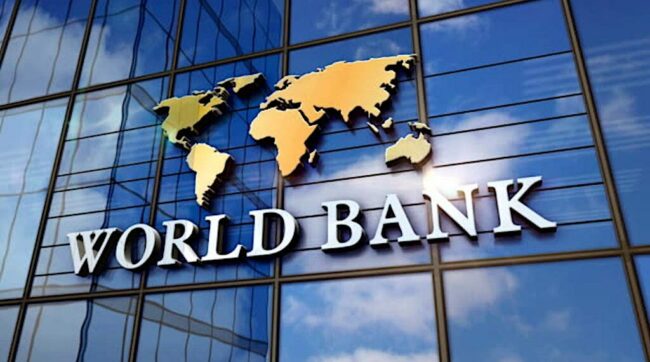The World Bank Group President, Ajay Banga, has stated that there are four emerging shifts with the potential to fundamentally reshape the agribusiness landscape, having spoken about the potential of agribusiness and the role agriculture plays in shaping the future of food security, nutrition, growth, and employment for decades.
Ajay stated this at the Agriculture Flagship Event of the 2024 World Bank Group Annual Meetings on Wednesday in Washington, D.C., United States.
He said that agriculture is susceptible to climate risks and a significant contributor to emissions despite receiving four per cent of climate finance globally.
The President stated that there is an opportunity to tap into these resources to advance climate-smart agriculture, which would grow productivity while reducing emissions.
Banga explained that the new tools for derisking are opening doors for private capital to flow into the agricultural sector, adding that credit guarantees, first-loss facilities, and insurance instruments help make lending safe and more commercially viable.
Ajay noted that advancements in digitalisation and new digital tools have created opportunities to aggregate farmers and connect them with buyers, financial services, and innovative technologies that enhance productivity.
He concluded that a significant portion of agribusiness financing is sourced from large food companies and traders who often operate in isolation, adding that this approach can create inefficiencies and fragmentation, leaving smaller farmers.
‘For decades, we’ve spoken about the potential of agribusiness and the role agriculture plays in shaping the future of food security, nutrition, growth, and employment.
“We’ve examined the challenges from every angle—how to increase food production, boost productivity, and resolve issues around water scarcity, fertilisers, infrastructure, and financing.
“These challenges have often been roadblocks to realising the full potential of this industry. But something is different now. Four key shifts are emerging that make this the right moment for a new strategic approach for the World Bank Group:
“First, agriculture is increasingly vulnerable to climate risks and a significant contributor to emissions, yet it only receives 4 per cent of climate finance globally.
“There is an opportunity to tap into these resources to advance climate-smart agriculture, which would grow productivity while reducing emissions
“Second, new tools for derisking are opening doors for private capital to flow into the agricultural sector. We’ve seen credit guarantees, first-loss facilities, and insurance instruments help make lending safe and more commercially viable. These financial tools, when paired with public sector policy and regulatory reforms, can create a favourable environment for private investors.
“Third, in the past, reaching individual farmers has been difficult for fintechs or commercial banks. Advancements in digitalisation and new digital tools have created opportunities to aggregate farmers and connect them with buyers, financial services, and innovative technologies that enhance productivity.
“Additionally, these tools create a “digital footprint,” helping farmers establish credit histories and dramatically reduce the cost of delivering financial services by up to 90%.
“Fourth, a significant portion of agribusiness financing is sourced from large food companies and traders, who often operate in isolation. This approach can create inefficiencies and fragmentation, leaving smaller farmers out. However, we have found that with farmer associations and producer organisations, we can move beyond the challenges of the past.” He said
According to him, these four emerging shifts arrive at a time of extraordinary opportunity as global food demand is set to increase by 50 to 60 per cent in the coming decades.
Meanwhile, he revealed that the bank will double its agri-finance and agribusiness commitments to $9 billion annually by 2030 in order to take advantage of the opportunity.
The President noted that change begins today with the goal of creating a comprehensive ecosystem for agribusiness.
ALSO READ THESE TOP STORIES FROM NIGERIAN TRIBUNE
